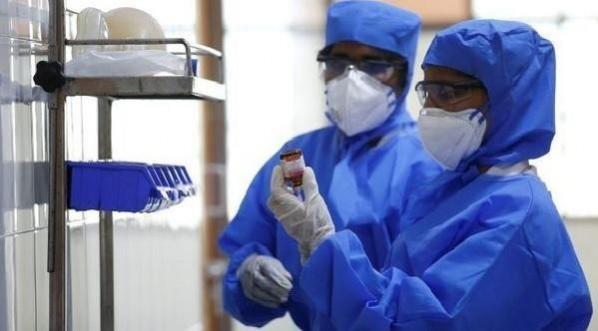
With novel coronavirus cases now spreading to over 70 countries and territories including India, doctors have warned that elderly people should be extra cautious due to their "compromised immunity" and higher chances of suffering from "co-morbidities" or other diseases which make them more susceptible to infection.
"Additionally, their lungs take more time in clearing up and there is not clear secretion from the lung. All these factors make them extremely vulnerable to the coronavirus. Anyone above the age of 50 is at high risk," Ravi Shekhar Jha, Senior Consultant and Head of the Department, Pulmonology, Fortis Escorts Hospital Faridabad, told IANS.
An analysis of all cases diagnosed in China as of February 11, 86.6 per cent were aged 30-79 years, the China Center for Disease Control reported last month.
Data from Korea Centers for Disease Control and Prevention (KCDC) showed that the mortality rate of COVID-19 patients aged 80 or older was 5.4 per cent, compared with an average mortality rate of 0.6 per cent.
"As we age, our immune system also depletes gradually and likely for this reason any elderly catching coronavirus is more vulnerable," said Rajiv Dang, Senior Director & Head of the Department, Internal Medicine, Max Hospital Gurugram.
While an analysis of the reported cases shows children are far less affected compared to the elderly, the reasons are not very clear.
"With over 93,000 cases registered so far across the world, it has been observed that children are less vulnerable to coronavirus. As per the reports from China until last week, out of the 75,000 cases registered, hardly 100 cases or so were paediatric," Dang said.
"This may also indicate that many a greater number of kids may have been affected, but being asymptomatic or not getting sick enough to seek medical treatment may be reasons for low numbers," he said.
According to the US Centers for Disease Control and Prevention (CDC), children should engage in usual preventive actions to avoid infection, including cleaning hands often using soap and water or alcohol-based hand sanitizer, avoiding people who are sick, and staying up to date on vaccinations, including influenza vaccine.
Doctors also believe that the novel coronavirus has "equal potential to penetrate and spread", irrespective of the gender, although various data show that more men are infected by the virus than women.
"According to data from China, 106 men had the infection for every 100 women being diagnosed. Worldwide data provided by the World Health Organization (WHO) suggests that around 51 per cent of the affected persons are male," Dang said.
There are now over 92,000 novel coronavirus cases globally, with infections spreading over 70 countries and territories. As of Wednesday, the virus has killed nearly 3,200 people. Of these, about 2,980 deaths have been reported from China.
According to Rajesh Chawla, Senior Consultant, Respiratory and Critical Care, Indraprastha Apollo Hospital in New Delhi, common symptoms of coronavirus infections include fever, cough, shortness of breath and other breathing difficulties.
In more severe cases, infection can cause pneumonia, severe acute respiratory syndrome, kidney failure and even death.
"Elderly people above 50 years of age suffering from diabetes and heart disease need to take extra precautions as it can lead to severe conditions in them," Chawla said.








